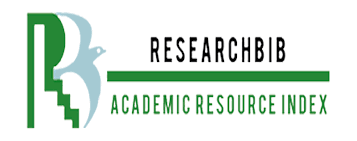Implications of the post COVID-19 syndrome on mental health in the adult stage
DOI:
https://doi.org/10.35622/j.rep.2022.02.002Keywords:
adult stage, implications, mental health, post-COVID-19 syndromeAbstract
The long-term effects of the respiratory illness caused by the SARS-CoV-2 virus in the adult population is a situation that generates concern because it alters the physical and mental aspects of the patient to the point of providing an inability in their daily functioning. Therefore, this investigation aims to understand the implications of the post-COVID-19 syndrome on mental health in the adult stage of life. For the methodology structuring, the PRISMA 2020 statement is used, which provides a clear summary of the information on the topic in the study. Among the conclusions, we find that the wide-ranging affectation has consequences at a psychological and psychiatric level, manifested in emotional difficulties in all daily activities, expressed in sadness, low level of spirit and perception of achievements, desmejora the quality of life, affects the state functional, cognition and ability to produce critical disability.
Estadísticas del Artículo
References
Anaya, J., Rojas, M., Salinas, M., Rodríguez, Y., Roa, G., Lozano, M., Rodríguez-Jiménez, M., Montoya, N., Zapata, E., Monsalve, D., Acosta, Y., & Ramírez, C. (2021). Post-COVID syndrome. A case series and comprehensive review. Autoimmunity Reviews, 20(11), 102947. https://doi.org/10.1016/j.autrev.2021.102947
Ander, E. (2016). Diccionario de psicología (tercera). http://hdl.handle.net/20.500.11818/1152
Augustin, M., Schommers, P., Stecher, M., Dewald, F., Gieselmann, L., Gruell, H., Horn, C., Vanshylla, K., Cristanziano, V., Osebold, L., Roventa, M., Riaz, T., Tschernoster, N., Altmueller, J., Rose, L., Salomon, S., Priesner, V., Luers, J., Albus, C., … Lehmann, C. (2021). Post-COVID syndrome in non-hospitalised patients with COVID-19: a longitudinal prospective cohort study. The Lancet Regional Health - Europe, 6, 35-45. https://doi.org/10.1016/j.lanepe.2021.100122
Ayuso, B., Pérez, A., Besteiro, Y., Romay, E., García, M., Marchán, Á., Rodríguez, A., Corredoira, J., & Rabuñal, R. (2022). Calidad de vida relacionada con la salud en pacientes recuperados de COVID-19. Journal of Healthcare Quality Research, 7, 67-87. https://doi.org/10.1016/j.jhqr.2022.01.001
Barbagelata, L., Masson, W., Iglesias, D., Lillo, E., Migone, J., Orazi, M., & Maritano, J. (2021). Cardiopulmonary Exercise Testing in Patients with Post-COVID-19 Syndrome. Medicina Clínica, 5, 45-56. https://doi.org/10.1016/j.medcli.2021.07.007
Bouza, E., Cantón, R., De Lucas, P., García, A., García, A., Gómez, J., González, J., Hernández, T., Martín, M., Martín, F., Martínez, M., Molero, J., Moreno, S., Rodríguez, F., Ruiz, J., De Pablo, S., Porta, J., & Santos, M. (2021). Post-COVID syndrome: A reflection and opinion paper. Revista Española de Quimioterapia, 34(4), 269-279. https://doi.org/10.37201/req/023.2021
Castillo, F., Fernández, E., Campos, M., & García, B. (2022). Sintomatología neuropsiquiátrica en el síndrome post-COVID. Propuesta de manejo y derivación desde atención primaria. Medicina de Familia. SEMERGEN, 8, 12-24. https://doi.org/10.1016/j.semerg.2021.09.012
Cimas, J. (2021). Seguimiento de los pacientes con secuelas no respiratorias de la COVID-19. FMC - Formación Médica Continuada en Atención Primaria, 28(2), 81-89. https://doi.org/10.1016/j.fmc.2020.11.004
Clark, D., & Beck, A. (2012). Terapia cognitiva para trastornos de ansiedad. Editorial Desclée de Brouwer, S.A.
Control y la Prevención de Enfermedades. (2021). Afecciones posteriores al COVID-19. https://bit.ly/3HwlWf3
Davis, H., Assaf, G., McCorkell, L., Wei, H., Low, R., Re’em, Y., Redfield, S., Austin, J., & Akrami, A. (2021). Characterizing long COVID in an international cohort: 7 months of symptoms and their impact. EClinicalMedicine, 38, 34-45. https://doi.org/10.1016/j.eclinm.2021.101019
Goërtz, Y., Van, M., Delbressine, J., Vaes, A., Meys, R., Machado, F., Houben, S., Burtin, C., Posthuma, R., Franssen, F., Van, N., Hajian, B., Spies, Y., Vijlbrief, H., Van, A., Janssen, D., & Spruit, M. (2020). Persistent symptoms 3 months after a SARS-CoV-2 infection: the post-COVID-19 syndrome? ERJ Open Research, 6(4), 124-136. https://doi.org/10.1183/23120541.00542-2020
González, F. (2022). Post-COVID-19 conditions in Ecuadorian patients: an observational study. The Lancet Regional Health - Americas, 5, 100088. https://doi.org/10.1016/j.lana.2021.100088
Guerrero, S., & Bilbao, S. (2021). Persistencia del virus SARS-CoV-2 como causa etiológica de la sintomatología de larga duración en pacientes con COVID-19 persistente. Medicina General y de Familia, 10(2), 85-90. https://doi.org/10.24038/mgyf.2021.027
Higgins, V., Sohaei, D., Diamandis, E., & Prassas, I. (2021). COVID-19: from an acute to chronic disease? Potential long-term health consequences. Critical Reviews in Clinical Laboratory Sciences, 58(5), 297-310. https://doi.org/10.1080/10408363.2020.1860895
López, A., Bernal, M., & Gómez, R. (2021). Síndrome de COVID-19 persistente. Una revisión narrativa. Revista Clínica Española. https://doi.org/10.1016/j.rce.2021.10.003
Mahmud, R., Rahman, M., Rassel, M., Monayem, F., Sayeed, J., Islam, S., & Islam, M. (2021). Post-COVID-19 syndrome among symptomatic COVID-19 patients: A prospective cohort study in a tertiary care center of Bangladesh. PLOS ONE, 16(4), e0249644. https://doi.org/10.1371/journal.pone.0249644
National Institute for Health and Care Excellence (NICE). (2020). COVID-19 rapid guideline: managing the long-term effects of COVID-19. https://www.nice.org.uk/guidance/ng188
Organización Mundial de la Salud. (2022). Depresión. https://www.who.int/es/health-topics/depression#tab=tab_1
Organizaciones de Naciones Unidas. (2021). Definen el síndrome post COVID-19 o “COVID-19 de larga duración" como enfermedad. Noticias ONU Mirada global Historias humanas. https://bit.ly/36XBf3L
PanAmerican Health Organization. (2021). Impacto de la COVID-19 en los servicios para trastornos mentales, neurológicos y por consumo de sustancias psicoactivas en la región de las Américas: resultados de una evaluación rápida. https://bit.ly/34dBc2Q
Pardo, J., & López, A. (2021). El síndrome post COVID, incapacidad temporal laboral y prevención. Revista prevención, 2, 123-135. https://bit.ly/3IDimBd
Rodríguez, M., Puchades, F., Ezzeddine, A., Asensio, J., Saiz, C., & López, M. (2022). Síndrome post cuidados intensivos en COVID-19. Estudio piloto unicéntrico. La calma no llega tras la tempestad. Medicina Clínica, 7, 12-23. https://doi.org/10.1016/j.medcli.2021.11.014
Rodríguez, P., Armenteros, L., Rodríguez, E., & Gómez, F. (2021). Descripción de los 201 síntomas de la afectación multiorgánica producida en los pacientes afectados por la COVID-19 persistente. Medicina General y de Familia, 10(2), 60-68. https://doi.org/10.24038/mgyf.2021.016
Staub, H., & Staub, L. (2022). Síndrome inflamatória multissistêmica (SIMS) pós-COVID-19. Scientia Medica, 32(1), e42436. https://doi.org/10.15448/1980-6108.2022.1.42436
Valverde, M., González, A., Alvarado, V., & Miangolarra, J. (2022). Evolución y calidad de vida a los tres meses tras hospitalización por neumonía COVID. Rehabilitación, 14, 1-15. https://doi.org/10.1016/j.rh.2021.11.001
World Health Organization. (2022). COVID-19 weekly epidemiological update (80.a ed.). https://apps.who.int/iris/handle/10665/352199
Published
Issue
Section
License
Copyright (c) 2022 Victor Guzmán-Brand (Autor/a)

This work is licensed under a Creative Commons Attribution 4.0 International License.
La Revista Estudios Psicológicos del Instituto Universitario de Innovación Ciencia y Tecnología Inudi Perú está sobre una licencia internacional Creative Commons Atribución 4.0. Lo que permite que los archivos sean de libre acceso y distribuidos libremente.
LOS AUTORES RETIENEN SUS DERECHOS:
- Los autores retienen sus derechos de marca y patente, y tambien sobre cualquier proceso o procedimiento descrito en el artículo.
- Los autores retienen el derecho de compartir, copiar, distribuir, ejecutar y comunicar públicamente el artículo publicado en la Revista Estudios Psicológicos (por ejemplo, colocarlo en un repositorio institucional o publicarlo en un libro), con un reconocimiento de su publicación inicial.
- Los autores retienen el derecho a hacer una posterior publicación de su trabajo, de utilizar el artículo o cualquier parte de aquel (por ejemplo: una compilación de sus trabajos, notas para conferencias, tesis, o para un libro), siempre que indiquen la fuente de publicación (autores del trabajo, revista, volumen, número y fecha).



















